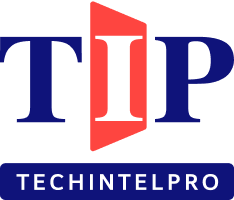


ScyllaDB, a Sunnyvale-based NoSQL database provider, announced on July 24, 2025, the availability of its ScyllaDB Cloud with the Bring Your Own Account (BYOA) model on Google Cloud, expanding options beyond fully-managed and self-hosted deployments on Google Cloud Marketplace. The BYOA model enables customers to deploy database clusters within their own Google Cloud Platform (GCP) Account, Project, and VPC, retaining full data ownership while ScyllaDB manages tasks like updates, backups, monitoring, and optimization. Customers pay ScyllaDB subscription fees and infrastructure costs directly to Google Cloud, ensuring compliance and cost efficiency. With a shard-per-core architecture, ScyllaDB delivers 2x better price-performance than competitors like DynamoDB, powering clients like Discord and ShareChat in the $15 billion cloud database market.
Announced July 24, 2025: ScyllaDB Cloud BYOA model launched on Google Cloud.
Offers full data control, 50% lower latency, and 2x price-performance vs. DynamoDB.
ScyllaDB manages clusters; customers pay Google Cloud for infrastructure.
Serves 400+ companies like Disney+ Hotstar, Zillow, and Comcast.
Cloud database market valued at $15B, projected to reach $30B by 2030.
Builds on ScyllaDB X Cloud’s elastic scaling, launched June 2025.
The BYOA model, detailed in ScyllaDB’s documentation, allows customers to deploy clusters on Google Cloud’s n2-highmem machines with local NVMe storage for optimal performance. “ScyllaDB’s BYOA model gives us improved performance and better data privacy,” said Dean Poulin, Tripadvisor’s Data Engineering Lead, noting lower latencies due to co-location with microservices. To set up, users:
Access the “Bring Your Own Account” tab in ScyllaDB Cloud’s Managed Resources.
Select Google Cloud Platform, enter their Project ID, and generate a Terraform template.
Run terraform init, plan, and apply to provision resources, ensuring no manual changes to security groups or permissions to maintain service reliability. ScyllaDB assumes exclusive management of resources, tagging them for easy identification. This model supports compliance needs in regulated industries like healthcare and finance, as highlighted in posts on X.
Founded in 2015, ScyllaDB, with a $400 million valuation post-2024 funding, serves over 400 clients, including Expedia and Samsung, with a Cassandra-compatible NoSQL database handling millions of ops/sec. Its close-to-the-metal architecture delivers predictable low latencies, reducing costs by 50% compared to competitors, per company data. The $15 billion cloud database market, with 60% of enterprises adopting NoSQL per 2025 reports, is projected to double by 2030. ScyllaDB’s partnership with Google Cloud, enhanced by SADA Systems’ expertise, supports 20 global regions, competing with AWS DynamoDB and MongoDB Atlas. The June 2025 ScyllaDB X Cloud launch further improved elasticity and performance.
The cloud database sector faces challenges like data sovereignty, with 55% of firms citing compliance concerns, per 2025 reports. Posts on X from @ScyllaDB and @BigDATAwireNews emphasize the BYOA model’s privacy and performance benefits, reflecting positive sentiment. ScyllaDB’s SOC2, ISO, and PCI-DSS certifications bolster trust, while its 2024 partnership with SADA and Google Cloud Marketplace presence enhance accessibility. Competitors like MongoDB Atlas offer similar managed services, but ScyllaDB’s shard-per-core design and BYOA flexibility provide a cost-performance edge, with clients reporting 40% higher throughput.
ScyllaDB’s BYOA model on Google Cloud empowers enterprises with scalable, high-performance database solutions, ensuring data control and compliance in a rapidly growing market.
ScyllaDB is engineered to deliver predictable performance at scale. It’s adopted by organizations that demand ultra-low latency, even with workloads exceeding millions of ops/sec. Our shard-per-core architecture leverages the power of modern infrastructure – translating to fewer nodes, less admin, and lower costs. Over 400 game-changing companies like Disney+ Hotstar, Expedia, Discord, Crypto.com, Zillow, Starbucks, Comcast, and Samsung use ScyllaDB for their toughest database challenges.
